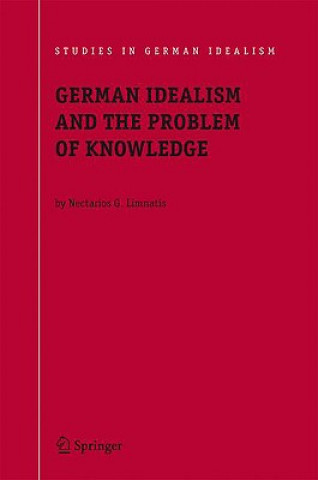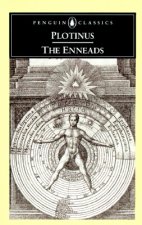
Kód: 01418547
German Idealism and the Problem of Knowledge:
Autor Nectarios G. Limnatis
The problem of knowledge in German Idealism has drawn increasing attention in recent years. This is the first attempt at a systematic critique that covers all four major figures, Kant, Fichte, Schelling, and Hegel. In examining th ... celý popis
- Jazyk:
 Angličtina
Angličtina - Vazba: Pevná
- Počet stran: 428
Nakladatelství: Springer-Verlag New York Inc., 2008
- Více informací o knize

5094 Kč

Skladem u dodavatele v malém množství
Odesíláme za 12-15 dnů
Potřebujete více kusů?Máte-li zájem o více kusů, prověřte, prosím, nejprve dostupnost titulu na naši zákaznické podpoře.
Přidat mezi přání
Mohlo by se vám také líbit
-

Imperial Germany Revisited
1123 Kč -

Good Cascade Impactor Practices, AIM and EDA for Orally Inhaled Products
5094 Kč -

Global Specification and Validation of Embedded Systems
3313 Kč -

50 Digital Ideas You Really Need to Know
475 Kč -

Immigrant Entrepreneurs
5624 Kč -

Aging and Technological Advances
2259 Kč -

geoENV I - Geostatistics for Environmental Applications
6578 Kč
Dárkový poukaz: Radost zaručena
- Darujte poukaz v libovolné hodnotě a my se postaráme o zbytek.
- Poukaz se vztahuje na celou naši nabídku.
- Elektronický poukaz vytisknete z e-mailu a můžete ihned darovat.
- Platnost poukazu je 12 měsíců od data vystavení.
Více informací o knize German Idealism and the Problem of Knowledge:
Nákupem získáte 509 bodů
 Anotace knihy
Anotace knihy
The problem of knowledge in German Idealism has drawn increasing attention in recent years. This is the first attempt at a systematic critique that covers all four major figures, Kant, Fichte, Schelling, and Hegel. In examining the evolution of the German idealist discussion with respect to a broad array of concepts (epistemology, metaphysics, logic, dialectic, contradiction, totality, and several others), the author draws from a wide variety of sources in several languages, employs lucid and engaging language, and offers a fresh, incisive and challenging critique.§Limnatis contrasts Kant s epistemological assertiveness with his ontological scepticism as a critical issue in the development of the discourse in German Idealism, and argues that Fichte s phenomenological demarche only amplifies the Kantian impasse, but allows him to launch a path-breaking critique of formal logic, and to press forward the dialectic. Schelling s later restoration of metaphysics aims exactly at overcoming the Fichtean conflict between epistemological monism and ontological dualism. And it is Hegel who synthesizes the preceding discussion and unambiguously addresses the need for a new philosophical logic, the dialectical logic. Limnatis scrutinizes Hegel s deduction in the Phenomenology, invokes modern genetic epistemology, and advances a non-metaphysical reading of the Science of Logic as a genetic theory of systematic knowledge and as circular epistemology. Emphasizing the unity between the logical and the historical, the distinction between intellectual (verständlich) and rational (vernünftig) explanation, and the cognitive importance of contradiction, the author argues for the prospect of an evolving totality of reflective reason.
 Parametry knihy
Parametry knihy
Zařazení knihy Knihy v angličtině Humanities Philosophy History of Western philosophy
5094 Kč
- Plný název: German Idealism and the Problem of Knowledge:
- Podnázev: Kant, Fichte, Schelling, and Hegel
- Autor: Nectarios G. Limnatis
- Jazyk:
 Angličtina
Angličtina - Vazba: Pevná
- Počet stran: 428
- EAN: 9781402087998
- ISBN: 1402087993
- ID: 01418547
- Nakladatelství: Springer-Verlag New York Inc.
- Hmotnost: 1760 g
- Rozměry: 235 × 155 × 25 mm
- Datum vydání: 23. October 2008
Oblíbené z jiného soudku
-

Meditations
279 Kč -

The Myth of Sisyphus
169 Kč -

Why I Am so Clever
91 Kč -

Meditations
285 Kč -

Republic
282 Kč -

Beyond Good and Evil
258 Kč -

Gay Science
342 Kč -

Aphorisms on Love and Hate
90 Kč -

Beyond Good & Evil
296 Kč -

Meditations on First Philosophy
276 Kč -

Intellectual Life
470 Kč -

Socrates' Defence
90 Kč -

Discourses, Fragments, Handbook
323 Kč -

Ride the Tiger
518 Kč -

Thus Spoke Zarathustra
291 Kč -

Fear and Trembling
276 Kč -

Birth of Tragedy
89 Kč -

Early Greek Philosophy
356 Kč -

Groundwork for the Metaphysics of Morals
276 Kč -

Gorgias
232 Kč -

Brief History of Analytic Philosophy - From Russell to Rawls
955 Kč -

On Duties
335 Kč -

Discourses and Selected Writings
323 Kč -

Nicomachean Ethics
143 Kč -

Nausea
276 Kč -

Letters from a Stoic
276 Kč -

Meditations
502 Kč -

Simulacra and Simulation
416 Kč -

Phenomenology of Spirit
546 Kč -

Twilight of the Idols with The Antichrist and Ecce Homo
143 Kč -

On Liberty, Utilitarianism and Other Essays
223 Kč -

On the Suffering of the World
136 Kč -

Human Condition
514 Kč -

On the Shortness of Life
236 Kč -

Existentialism Is a Humanism
223 Kč -

Think
303 Kč -

Guide to the Good Life
457 Kč -

How To Be A Stoic
454 Kč -

The Symposium
235 Kč -

Human, All Too Human & Beyond Good and Evil
143 Kč -

At The Existentialist Cafe
277 Kč -

Undiscovered Self
708 Kč -

Passions of the Soul and Other Late Philosophical Writings
302 Kč -

The Trouble With Being Born
322 Kč -

Leviathan
143 Kč -

City of God
449 Kč -

Ecce Homo
249 Kč -

Enneads
401 Kč -

On Friendship
196 Kč
Osobní odběr Praha, Brno a 12903 dalších
Copyright ©2008-24 nejlevnejsi-knihy.cz Všechna práva vyhrazenaSoukromíCookies


 Vrácení do měsíce
Vrácení do měsíce 571 999 099 (8-15.30h)
571 999 099 (8-15.30h)